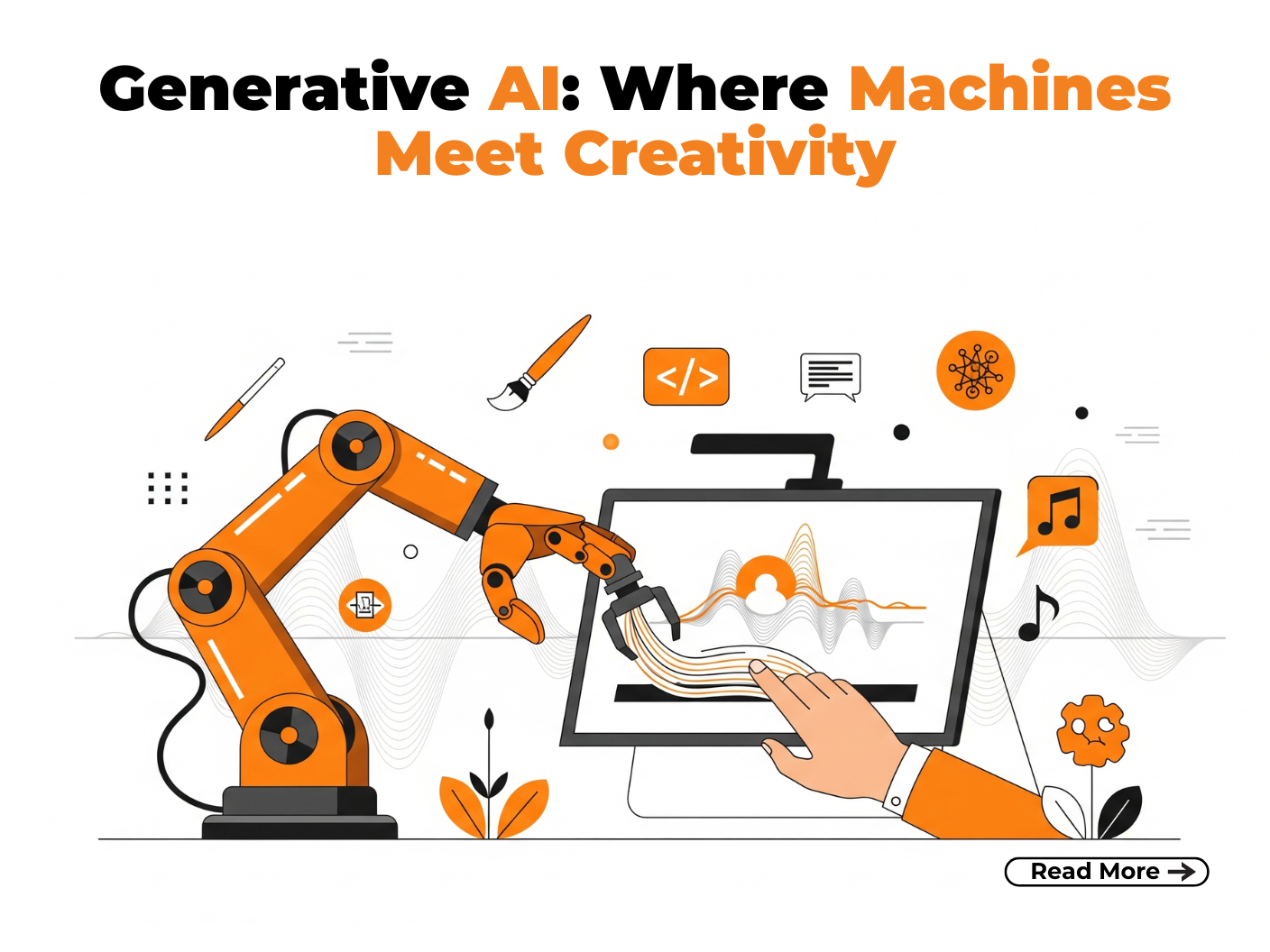Artificial Intelligence (AI) is no longer just a futuristic concept. It has become a part of our daily lives. From smart assistants in homes to self-checkout systems in supermarkets, AI is everywhere.
One of the most exciting changes has come in education. Schools and universities are adopting AI at a fast pace. This shift is visible across classrooms, online learning platforms, and even administrative tasks.
India is embracing this change too. The use of artificial intelligence in education in India is growing rapidly. It is shaping how students learn, how teachers teach, and how institutions run.
What is Artificial Intelligence in Education?
Artificial intelligence in the field of education refers to the use of smart technologies to enhance teaching and learning. AI can analyse student performance, personalise lessons, and even automate tasks like grading and attendance.
AI tools are becoming central to EdTech platforms. These platforms use artificial intelligence tools in education to support both students and educators. AI can create quizzes, generate feedback, and adjust the difficulty level of content.
In short, AI brings a data-driven, customised, and efficient approach to education. The many uses of artificial intelligence in education make learning more accessible and teaching more efficient
Role of Artificial Intelligence in Indian Education
The role of artificial intelligence in education is expanding in India. Here’s how it is making an impact:
1. Smart Content Creation
AI can generate quizzes, flashcards, and study notes within seconds. This helps teachers save time and provides students with extra resources.
2. Personalised Learning Paths
AI tracks student behaviour, learning speed, and performance. It then creates customised study plans. This makes learning more effective and enjoyable.
3. Automation of Administrative Tasks
AI can automate routine work like grading assignments, tracking attendance, and scheduling. This allows teachers to focus more on teaching.
The adoption of artificial intelligence in education in India is transforming classrooms into smarter spaces.
Examples and Use Cases in India
Several Indian platforms are already using AI in creative and impactful ways. Here are some examples of artificial intelligence in education across the country:
1. Virtual Teaching Assistants
Platforms like Byju’s and Vedantu use AI chatbots to answer student queries 24/7. These bots help learners revise topics and solve doubts instantly.
2. Adaptive Learning Platforms
Apps like Embibe and Toppr use AI to understand student progress. They offer lessons that match each learner’s needs and abilities.
3. Higher Education and Smart Campuses
Colleges and universities are using AI for research, administration, and campus security. AI systems manage data, monitor campus activities, and support academic planning.
This shows how artificial intelligence and higher education are working hand in hand. The rise of artificial intelligence in higher education is making learning more efficient and research more focused.
How LPU is Embracing AI in Education?
Lovely Professional University (LPU) is one of the pioneers in integrating artificial intelligence in education in India. The university believes in staying ahead with technology. It combines traditional learning with advanced AI tools to improve teaching, research, and campus operations.
AI-Powered Learning
LPU uses AI-driven platforms to offer personalised learning paths. These tools monitor student performance and suggest tailored study materials. This helps every student progress at their own pace.
Smart Campus and Research Facilities
The campus is equipped with smart systems powered by AI. From digital attendance tracking to intelligent scheduling and resource allocation, everything runs smoothly. In research, AI is helping LPU students and faculty to analyse large datasets and produce quality publications.
Industry-Aligned Programmes
LPU offers specialised programmes in Artificial Intelligence and Machine Learning. These courses prepare students for roles in data science, AI development, and emerging tech industries. The university has collaborations with tech leaders to ensure students learn from real-world case studies.
Also Read- What is Machine Learning
Support for Innovation
LPU supports innovation through AI labs, hackathons, and startup incubation. Students get opportunities to work on AI-based solutions for real problems. The focus is not just on learning AI, but also on using it to create a meaningful impact.
With these initiatives, LPU shows its commitment to developing future-ready graduates who can thrive in an AI-driven world.
Benefits of Artificial Intelligence in Education
There are many benefits of artificial intelligence in education. These include:
- Personalised Learning: AI adjusts lessons to fit each student’s needs. This improves understanding and keeps learners motivated.
- 24/7 Tutoring: AI-powered apps and chatbots are available anytime. Students can get help whenever they need it.
- Efficient Assessment: Teachers can save time with automated grading and progress tracking.
- Curriculum Planning: AI helps design syllabi based on student performance and interests.
These artificial intelligence benefits in education highlight the importance of artificial intelligence in education. It supports both teaching and learning in a smart and scalable way.
Disadvantages and Challenges
Despite its many benefits, AI also comes with some drawbacks. Let’s look at the disadvantages of artificial intelligence in education:
- Lack of Human Touch: AI cannot replace human empathy, encouragement, or mentorship.
- Data Privacy Issues: Student data may be at risk if platforms do not follow strict security rules.
- Technology Dependence: Relying too much on machines may weaken critical thinking and social interaction.
- Accessibility Gaps: Rural areas or schools with poor internet access may not benefit equally.
These are real concerns. While looking at the pros and cons of artificial intelligence in education, it’s important to build systems that are safe, inclusive, and ethical.
The Future of AI in Indian Education
India is taking major steps to promote AI in education. The National Education Policy (NEP 2020) encourages digital learning and AI awareness. NITI Aayog has also introduced AI for All programs.
We will soon see deeper integration of AI in higher education, vocational training, and research. Colleges are beginning to offer AI-based courses. Students are learning skills to work with or build AI systems.
Teachers are getting trained to use AI tools. This helps them adopt new ways of teaching and assessing.
The future looks promising. With the right support and infrastructure, AI can make education more inclusive and powerful.
Conclusion
Artificial intelligence in education is changing the way we teach and learn. It is creating smart classrooms, boosting student engagement, and supporting teachers with automation.
In India, the use of artificial intelligence in education in India is rising fast. Platforms, universities, and the government are all playing a role.
We have explored its benefits, such as personalisation and 24/7 access. We’ve also seen the challenges, including data privacy and a lack of emotional support.
The way forward lies in balance. We must use AI to support human-led learning, not replace it. Ethical use and equal access will help AI reach its full potential in Indian education.
FAQs
Q1: What are the main benefits of artificial intelligence in education?
AI offers personalised learning, automates grading, and provides round-the-clock support. It also helps with curriculum planning.
Q2: How is AI used in Indian classrooms today?
AI is used for smart content, adaptive learning, virtual tutors, and administrative automation. EdTech platforms like Byju’s and Embibe lead the way.
Q3: What are the risks of relying on AI in education?
Risks include data breaches, loss of human connection, and overdependence on technology. These must be managed carefully.
Q4: Can AI replace teachers in the future?
No. AI can support but not replace teachers. Human interaction, guidance, and mentorship are essential in learning.
Q5: How is AI transforming higher education in India?
AI supports research, smart campuses, student analytics, and personalised course planning. It is also part of vocational and technical training.




![Career Paths After B.Sc. Information Technology [Lateral Entry] Career Paths after B.Sc. Information Technology [Lateral Entry]](https://www.lpu.in/blog/wp-content/uploads/2026/01/Career-Paths-after-B.Sc_.-Information-Technology-Lateral-Entry-218x150.png)









